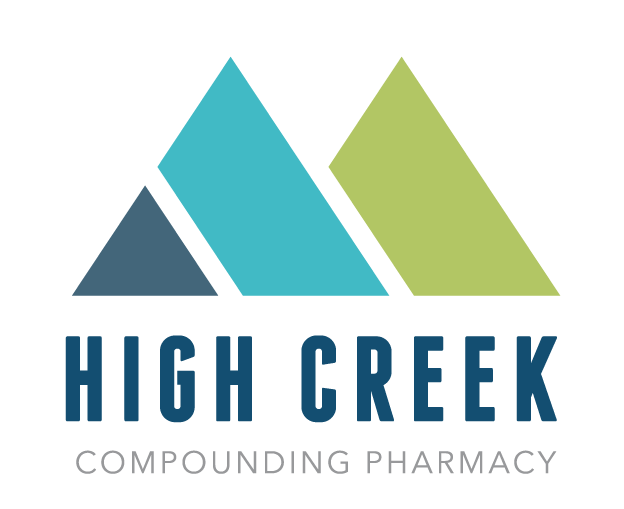
04 Jul Ensuring Quality Assurance in Compounding Pharmacy: Commitment to Patient Safety
In healthcare, compounding pharmacies play a crucial role in meeting the unique medication needs of individual patients. Compounded medications are tailored to specific requirements, whether adjusting dosages, combining multiple medications into one, or eliminating certain ingredients due to allergies or sensitivities. However, ensuring compounded medications’ quality and safety is paramount. This blog post will explore the significance of quality assurance in compounding pharmacy and how a strong commitment to patient safety is essential. We will discuss six key aspects of ensuring quality assurance in compounding pharmacies.
Regulatory Compliance and Accreditation
In a compounding pharmacy, maintaining quality assurance is paramount as it directly impacts patient safety and satisfaction. Compounding pharmacies must strictly adhere to regulatory standards and obtain proper accreditation to achieve this. Compounding pharmacies can demonstrate their commitment to providing safe and effective medications by following these guidelines. Obtaining accreditation is another validation of a compounding pharmacy’s dedication to quality assurance. It gives patients and healthcare providers added confidence in the pharmacy’s ability to deliver high-quality compounded medications.
Compliance with regulatory standards and accreditation showcase a compounding pharmacy’s unwavering commitment to upholding quality assurance measures. This commitment not only benefits the pharmacy itself but also contributes to improved healthcare outcomes. Patients can trust that they receive medications prepared with the highest care and expertise. Healthcare providers can rely on compounding pharmacies prioritizing quality assurance to provide medicines that meet their patient’s needs. Overall, maintaining quality assurance through adherence to regulatory standards and accreditation is vital for the success and reputation of a compounding pharmacy. It ensures that patients receive safe and effective medications while instilling confidence in healthcare providers. This focus on quality assurance ultimately leads to better patient outcomes and satisfaction.

Qualified and Trained Personnel
The expertise and competence of pharmacy personnel are of utmost importance in ensuring the quality and safety of compounded medications. To uphold high standards, compounding pharmacies must employ qualified and trained individuals who comprehensively understand compounding techniques, sterile practices, and quality control measures. Pharmacists and pharmacy technicians must stay updated with industry advancements and regulatory requirements through continuous education and training programs. By investing in the knowledge and skills of their staff, compounding pharmacies can maintain the highest standards of patient care and provide safe and effective compounded medications. This commitment to excellence benefits patients and strengthens the pharmacy’s reputation within the healthcare community.
Additionally, it is crucial for compounding pharmacies to have stringent quality assurance processes in place to ensure that every compounded medication meets the required standards for safety, potency, and efficacy. Regular testing and monitoring should be conducted to verify the integrity of raw materials used in compounding and the final products. Furthermore, documentation should be maintained meticulously to track each step of the compounding process, including batch numbers, expiration dates, and quality control test results. By adhering to these best practices, compounding pharmacies can instill confidence in healthcare professionals and patients, establishing themselves as trusted providers of customized medications.
Stringent Quality Control Measures
In compounding medications, ensuring robust quality control measures is essential to identify and mitigate potential risks. To achieve this, compounding pharmacies must establish comprehensive protocols that encompass all aspects of the compounding process. This includes rigorous verification of the quality and purity of raw materials, regular calibration of equipment to maintain accuracy, and conducting sterility testing to prevent contamination. Proper labeling and packaging are also vital components of quality control. Precise and accurate labeling ensures that patients receive the correct medication and dosage, minimizing the risk of errors.
Additionally, appropriate packaging helps protect the integrity of compounded medications during storage and transportation. Compounding pharmacies can reduce the risk of medication errors, contamination, and other safety concerns by adhering to these stringent measures. Ultimately, these measures play a crucial role in maintaining patient safety and ensuring the efficacy of compounded medications. External audits may also validate a pharmacy’s adherence to these standards, further ensuring their commitment to quality control. Implementing robust quality control measures safeguards patient health and upholds the reputation of compounding pharmacies as trusted providers of customized medications. By prioritizing patient safety and efficacy, compounding pharmacies can continue to meet the unique needs of patients who require personalized treatments.
Standardized Compounding Practices
Standardization is a critical aspect of maintaining quality assurance in compounding pharmacies. Standardized procedures ensure consistent practices and reduce the risk of errors. These procedures should cover various aspects of compounding, including techniques, equipment usage guidelines, documentation requirements, and quality assurance checkpoints. By embracing standardized practices, pharmacies enhance the safety and reliability of compounded medications while promoting effective communication and collaboration among staff members. This ultimately leads to improved patient outcomes and an overall increase in the quality of care provided. It’s worth noting that standardization is an ongoing process that requires regular review and updates to align with industry best practices and regulatory standards.
By staying informed about these changes, pharmacies can continue delivering optimal patient care while adhering to the highest quality assurance standards. Regular training sessions and workshops can be organized to educate pharmacy staff on updated protocols and best practices in compounding. Additionally, standardization is vital in ensuring consistency across different compounding pharmacies. When standardized procedures are followed, patients can have confidence that their prescriptions will be prepared with the same accuracy and precision regardless of which pharmacy they visit. This consistency also allows for easier collaboration between healthcare providers as they can rely on the reliability and uniformity of compounded medications.
Furthermore, standardization helps improve workflow efficiency within compounding pharmacies by streamlining processes and reducing confusion or ambiguity. With clear guidelines, pharmacists can work more efficiently, reducing the likelihood of errors or variations in medication preparation. Standardization is essential in compounding pharmacy as it promotes consistent practices, enhances patient safety, fosters effective communication among staff members, improves workflow efficiency, and ensures compliance with industry regulations. Compounding pharmacies can provide high-quality compounded medications that meet the highest quality assurance standards by adhering to standardized procedures and regularly updating them based on evolving best practices.
Proper Documentation and Record-Keeping
Accurate documentation and record-keeping are crucial in compounding pharmacy as they serve several vital purposes. Firstly, they ensure traceability, accountability, and compliance with regulatory requirements. Each compounded medication must have detailed records, including ingredients used, the compounding process, quality control checks, and patient-specific details. These records not only allow for the identification and resolution of any issues that may arise during the compounding process but also facilitate effective communication with healthcare providers and ensure seamless continuity of patient care.
Furthermore, these comprehensive records serve as valuable references for future compounding processes. By analyzing past documentation, compounding pharmacies can identify trends, evaluate outcomes, and continually improve their practices to enhance efficiency and safety. Accurate record-keeping is essential for meeting regulatory requirements and upholding the highest standards of quality and safety in compounding pharmacy operations. Moreover, meticulous record-keeping instills confidence in patients, healthcare providers, and regulatory bodies. It demonstrates that every step has been taken to ensure compounded medications’ accuracy, consistency, and reliability.
Additionally, maintaining accurate records allows compounding pharmacies to track inventory effectively, manage expiration dates, and comply with auditing requirements. In conclusion, proper documentation and record-keeping are integral to the success of a compounding pharmacy. They contribute to patient safety by ensuring traceability and accountability while helping pharmacies meet regulatory requirements. These records also enable continuous improvement in practices by analyzing past data. Ultimately, meticulous record-keeping fosters trust among stakeholders by demonstrating a commitment to quality and safety in compounding pharmacy operations.

Continuous Quality Improvement and Monitoring
Maintaining quality assurance in a compounding pharmacy is an ongoing and dynamic process that requires constant refinement and oversight. To ensure the highest standards, compounding pharmacies must regularly establish robust mechanisms for monitoring and evaluating their quality assurance practices. One effective method is conducting internal audits to assess compliance with industry regulations and best practices. These audits help identify gaps or areas for improvement in the compounding process, ensuring that medications are prepared accurately and safely. Another important aspect of quality assurance is seeking feedback from healthcare providers and patients.
By actively listening to their experiences and concerns, compounding pharmacies can gain valuable insights into how their services can be improved. This feedback can be collected through surveys, focus groups, or direct communication channels. In addition to monitoring and feedback, it is crucial for compounding pharmacies to implement corrective actions when necessary promptly. This involves addressing any identified issues or errors and preventing them from recurring. By fostering a culture of continuous quality improvement, compounding pharmacies can adapt to evolving requirements and consistently deliver safe and high-quality compounded medications. This commitment to quality safeguards patient health and reinforces the trust of healthcare professionals who rely on these medications for their patient’s well-being.
Conclusion
In conclusion, High Creek Pharmacy in Richmond, UT, exemplifies a strong commitment to patient safety through its unwavering dedication to ensuring quality assurance in compounding pharmacy. With a focus on providing personalized medications tailored to individual patient needs, the pharmacy prioritizes the highest standards of quality control and safety measures. High Creek Pharmacy guarantees the highest level of patient care and satisfaction by employing experienced pharmacists, utilizing state-of-the-art equipment, and adhering to strict regulatory guidelines. High Creek Pharmacy is the go-to destination in Richmond, UT, for anyone seeking reliable and trustworthy compounding pharmacy services. Contact them today to experience exceptional care and peace of mind for all your medication needs.

No Comments